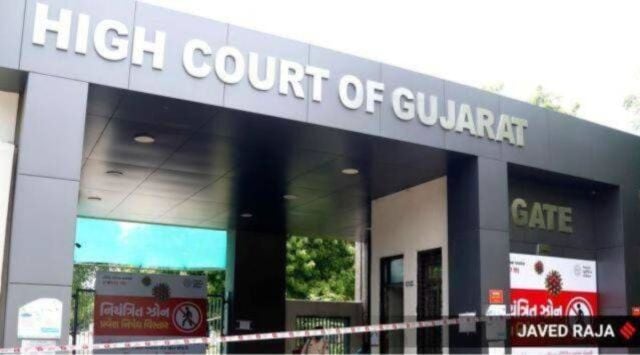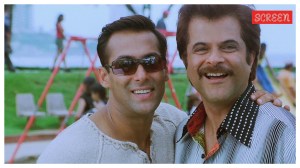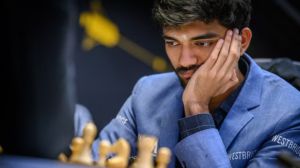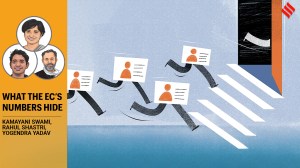Kheda flogging incident: Submit whether public flogging took place or not, Gujarat HC tells state
Public prosecutor Mitesh Amin, representing the state, said that the alleged incident of flogging in Kheda was preceded by an incident of stone pelting at a garba venue which has been communally sensitive.
 The matter was taken up by the division bench of Justices A S Supehia and M R Mengdey on July 3. (Express Photo)
The matter was taken up by the division bench of Justices A S Supehia and M R Mengdey on July 3. (Express Photo) Hearing a contempt petition moved by the victims of alleged flogging by the police at Gujarat’s Kheda last year, a division bench of the Gujarat High Court on Monday demanded that the state clarify whether the police officials had flogged the petitioners or not, even as the state refrained from specifically answering the court’s query.
The contempt petition moved by four Muslim victims of the public flogging and one woman who has alleged illegal detention said the police did not comply with the D K Basu guidelines of the Supreme Court which provides for rules that should be followed by police during arrest and detention.
The contempt petition was filed against 15 police personnel, including Ahmedabad range IG, Kheda Superintendent of Police (SP), 10 constables of Matar police station and local crime branch at Kheda, a police inspector of the Kheda local crime branch, and two police sub-inspectors, from Matar police station and Kheda local crime branch, respectively.
According to the petitioners, on October 4, 2022, at around 12 pm, the petitioners and five others were brought back to Undhela village’s Masjid Chowk, tied to a pole and beaten up by 13 police personnel using lathis in front of a crowd. Videos were recorded and circulated among the public by the police personnel, the petitioners said.
The matter was taken up by the division bench of Justices A S Supehia and M R Mengdey on July 3. Public prosecutor Mitesh Amin, representing the state, said that the alleged incident of flogging was preceded by an incident of stone pelting at a garba venue which has been communally sensitive, and indicated that keeping the D K Basu guidelines on detention and arrest in mind was secondary to controlling the law and order situation for the police officials on duty.
Addressing Amin, Justice Supehia, remarked orally, “First of all, you have to state specifically from the officers who are instructing you, and we are going to record (it in our order) that…the incident (of flogging) has not occurred…Whether the incident of tying them to a pole and thereafter beating with lathis has occurred or not. You say yes or no.”
To this, Amin responded, “My endeavour (before the court and the bench) is not to justify any act if at all that activity has happened, but my endeavour certainly is to place before the court that what was the duty of the concerned police officer in this flare up or the chances of there being flare up of communal sensitivity (in nature). The first function of the police officer was to control the situation.”
To this, Justice Supehia responded, “We are not at the moment casting any aspersions on their (police’s) duty. On the last occasion, the court had clarified that we are not going to decide this matter on passions. We have only to see whether the incident has occurred…the glaring aspect is the incident that happened on (October) 4 (2022) in the noon hours, either you deny it that ‘it has not occurred at all’. Or you can say that ‘yes, this was our duty and these are the reasons (that) if we had not done something worse could have happened.’”
Justice Supehia further said, “Point out that a person who is detained or an accused is to be tied to a pole and beaten in public view, that is the provision of law and it can be done under its rules. Point out that it can be done (under legal provisions).”
While the prosecutor refused to admit to the flogging, he added that he “needs to place material” on the court’s record to show that the petitioners are falsely pleading the incident of flogging and illegal detention.
The court kept the matter for further consideration on July 6.







